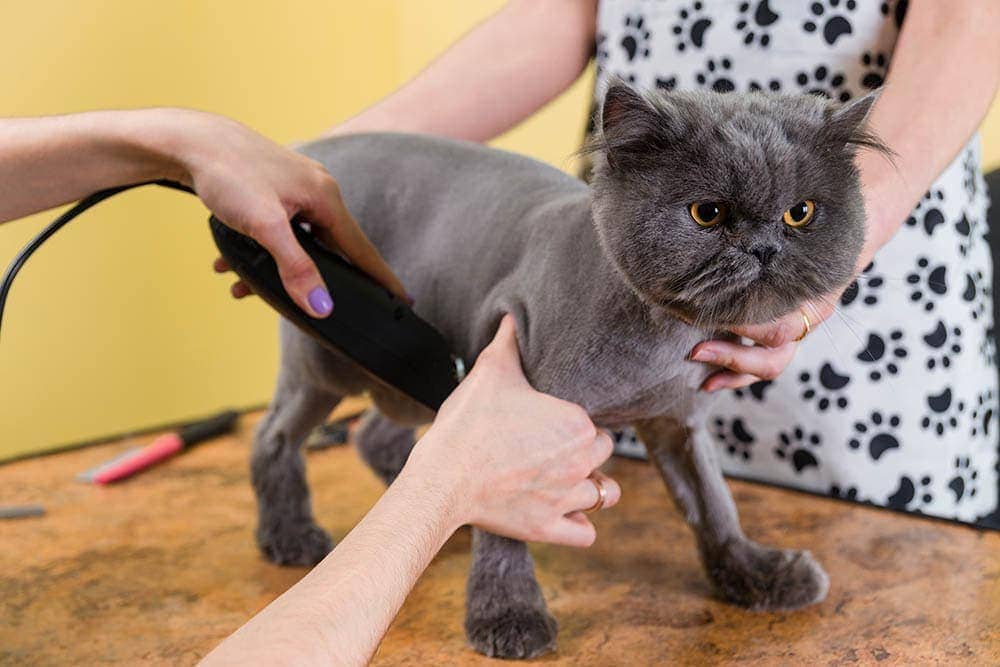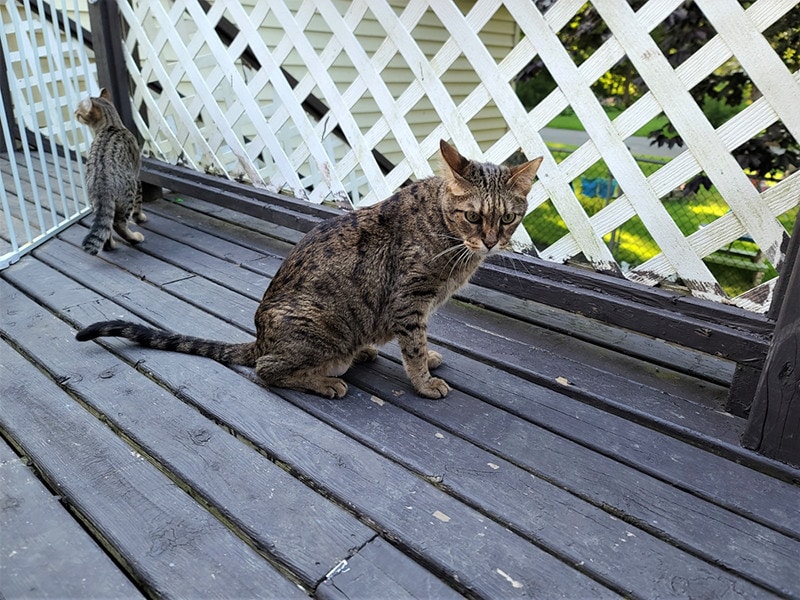Chicken Allergy in Cats: Vet Reviewed Signs, Causes & Care Tips
Updated on
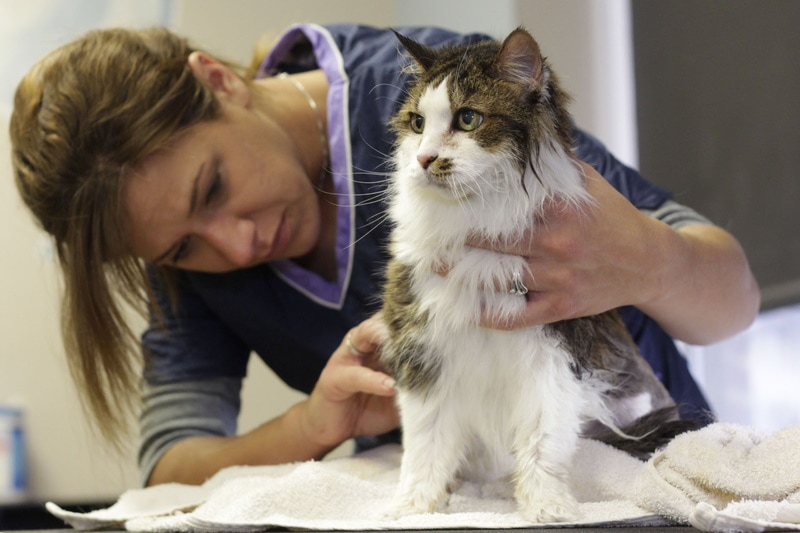
Click to Skip Ahead
Chicken is quite a common cause of food allergies in cats. For a cat to develop a chicken allergy, though, they must be exposed to the food. This is the only way for the body to determine how it will react to the ingredient. If an allergic reaction exists signs will manifest, which are most commonly skin and digestive problems.
However, some cats can develop allergies after years of eating chicken-based foods. So, just because your kitty does well with chicken in their kitten and/or adult years doesn’t mean that they will be fine with it throughout their lives.
What Is a Chicken Allergy in Cats?
Chicken allergy occurs if a cat’s immune system mistakenly reacts to chicken in the diet as if it was something harmful and produces antibodies against it. Most commonly this causes skin and/or gastrointestinal problems.It is not fully understood why food allergies develop in cats but genetics may play a role. Unfortunately cats can also be allergic to more than one thing.
While diagnosis of a food allergy and identifying problem foods is tricky and time consuming, once diagnosed the signs can be well controlled by avoiding the offending food item.

What Are the Signs of a Chicken Allergy in Cats?
There are a few signs that can develop if your cat is allergic to chicken. These signs will be the same as other food allergies and intolerances and similar to many other conditions. Food allergies most commonly cause skin problems and gastrointestinal upset and signs include:
- Persistent scratching
- Overgrooming
- Skin inflammation
- Skin lesions
- Hair loss
- Poor coat health
- Diarrhea
- Vomiting
Because these signs are not only caused by food allergies, your vet will need to rule out other health concerns, such as parasites. Therefore, you should contact your veterinarian to schedule tests or get guidance for commencing an elimination diet to determine the possible cause of the reaction.
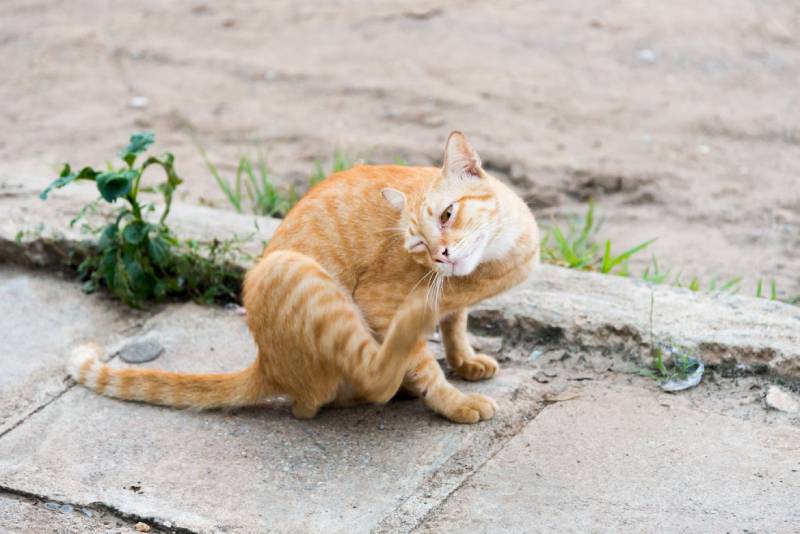
What Are the Causes of a Chicken Allergy in Cats?
The cause of a chicken allergy in cats comes down to the immune system. When it overreacts, signs of allergies will display themselves. No matter the cause of the allergy, once a reaction takes place, the best course of action is to remove the allergen if possible. So, if your cat is diagnosed with a chicken allergy, you’ll need to remove chicken from their diet altogether.
How Do I Care for a Cat With Chicken Allergies?
The first thing that you must do is establish that your cat is actually allergic to chicken and not something else. Otherwise, your efforts to relieve the signs of the allergy are likely to be in vain. Work with your veterinarian to establish the allergy. Once you’re sure your kitty is allergic to chicken, the best way to care for them is to avoid feeding them any chicken.
Read the ingredients list of any commercial food (wet and dry!) to make sure chicken is not listed. There are plenty of protein-rich foods on the market that don’t include chicken, but rather other protein sources such as fish and beef. If you expose your cat to a food that they are allergic to, they are likely to continue showing signs of a reaction.
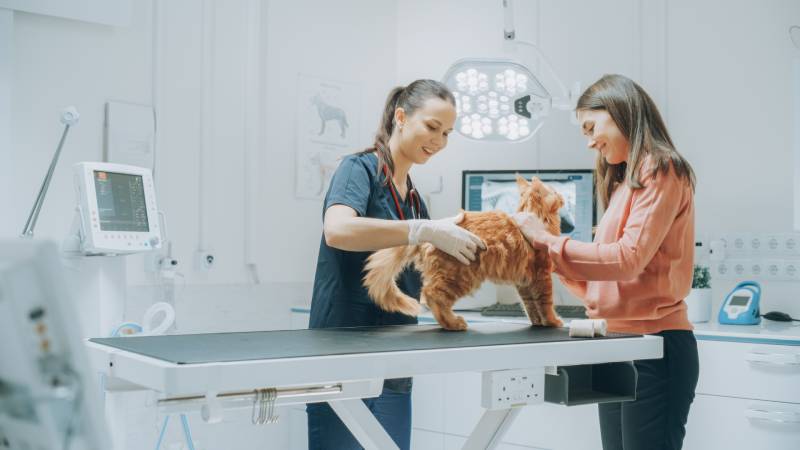
Frequently Asked Questions
When Are Cats Most Likely to Develop a Chicken Allergy?
Cats can develop allergies at any time throughout their lives. A recent study found that the average age that cats developed an adverse food reaction was 3.9 years of age. So your kitty might do fine with chicken for months or years before they develop an allergy to it. One thing is constant, though, which is that a cat must be exposed to chicken before their immune system will react to it.
How Is a Chicken Allergy in Cats Diagnosed?
It can be tough to narrow down the specific cause of a food allergy, or any allergy for that matter. It takes patience, attention, and usually the help of an experienced veterinarian. It’s never a good idea to just assume that your cat is allergic to chicken, because it might not be the culprit at all, so eliminating it from their diet would not do any good. For example, food allergies and environmental allergies can present with very similar skin signs in cats.
Food allergies are usually diagnosed based on response to a diet trial. Diet trials under veterinary guidance using either a novel protein ( one that a cat has not been fed before) or a prescription hydrolyzed diet, are the only way to obtain an accurate diagnosis of food allergy. Your vet will help you choose the best food for your cat. Unfortunately, there are currently no reliable blood or salivary tests to diagnose food allergy in cats.

Are Other Foods Considered Common Allergens for Cats?
There are indeed other foods that can cause allergic reactions in cats, usually other proteins such as fish, beef, and dairy. That said, any food in a cat’s diet could cause an allergic reaction.
Conclusion
A chicken food allergy is possible in cats, even though protein is one of the most important nutrients that felines require for good health throughout their lives. Fortunately, there are plenty of other protein sources available if your cat does have a chicken allergy so it should not be hard to avoid, meaning your cat can lead a happy normal life.
Featured Image Credit: Piqsels





